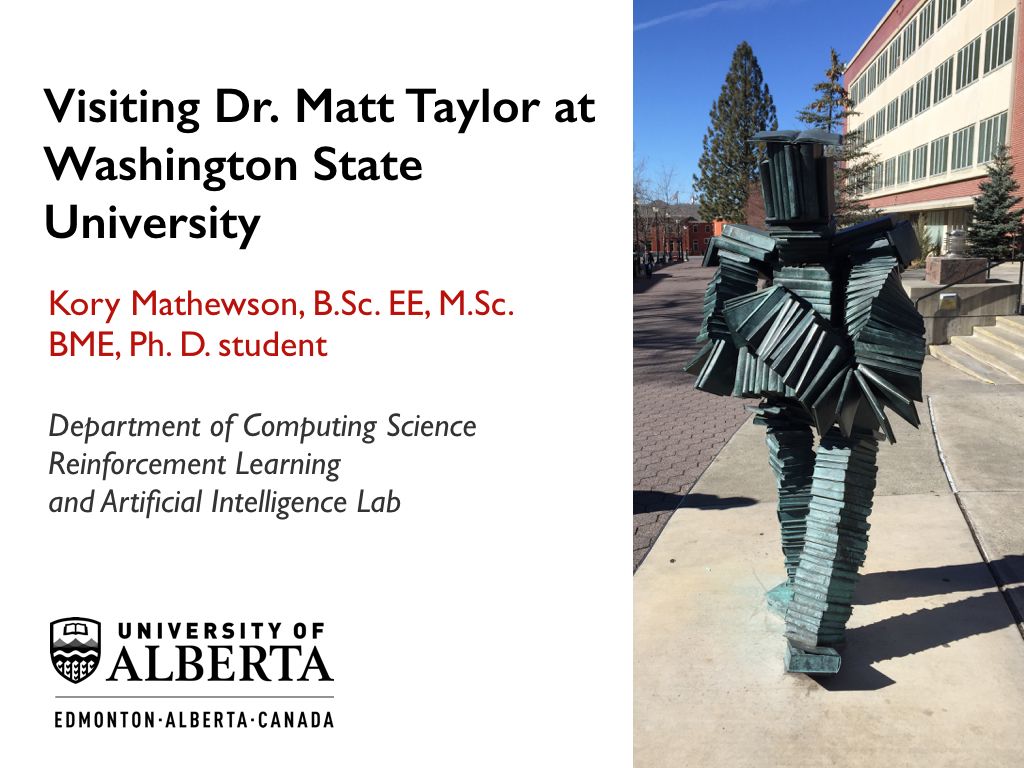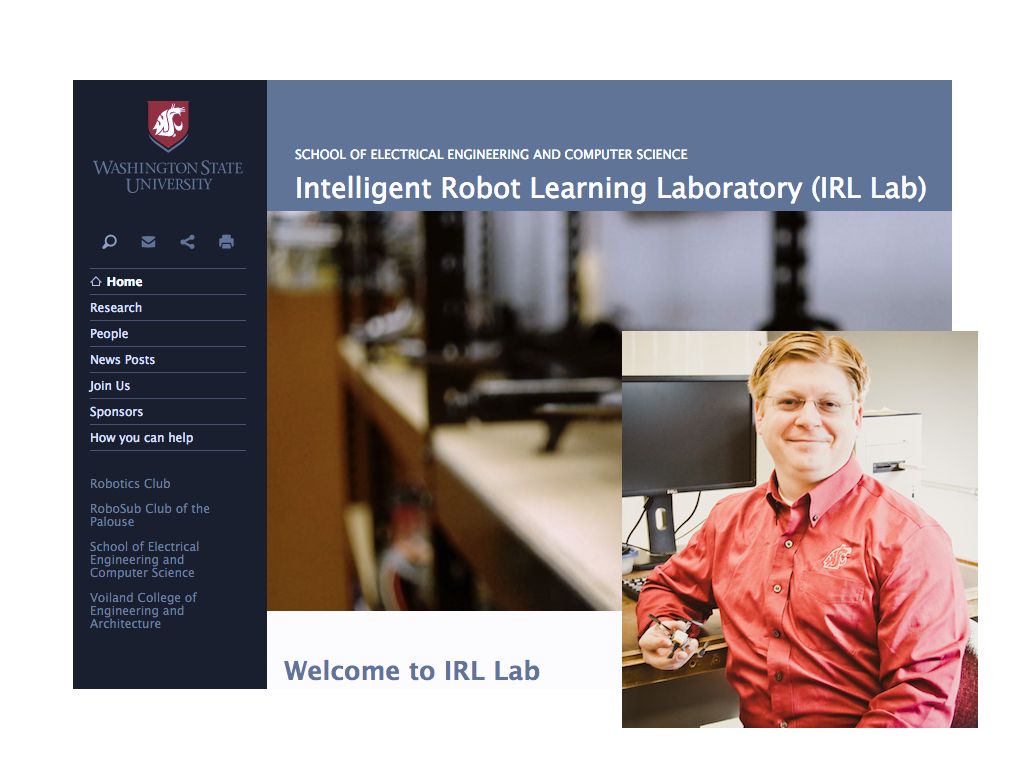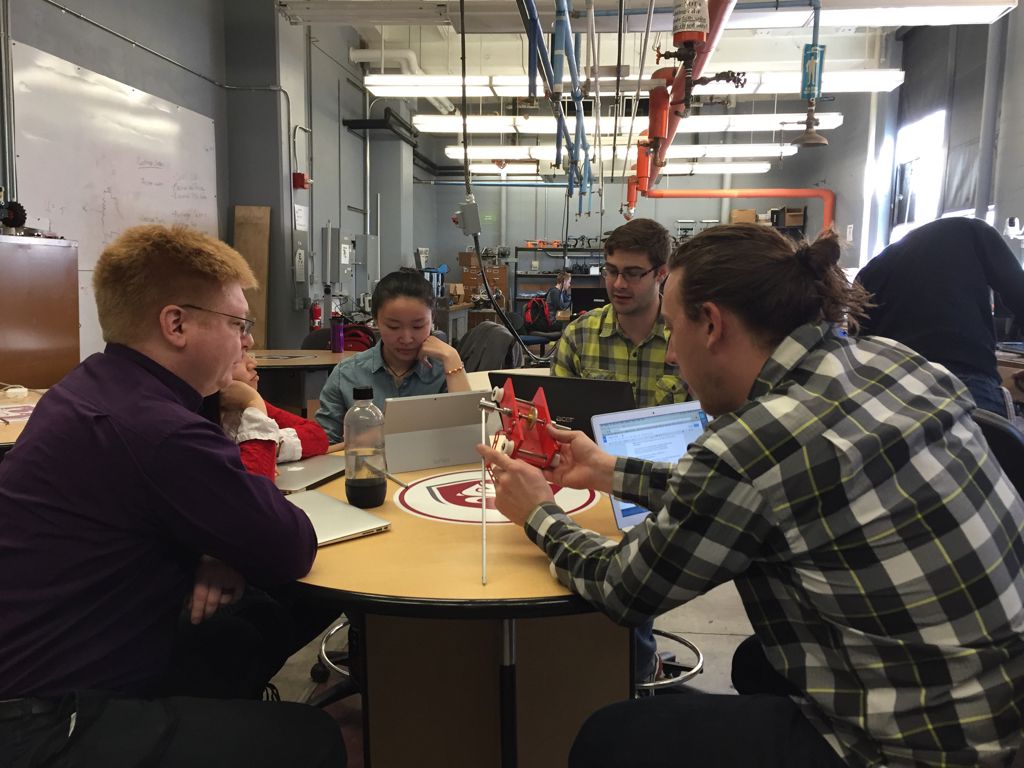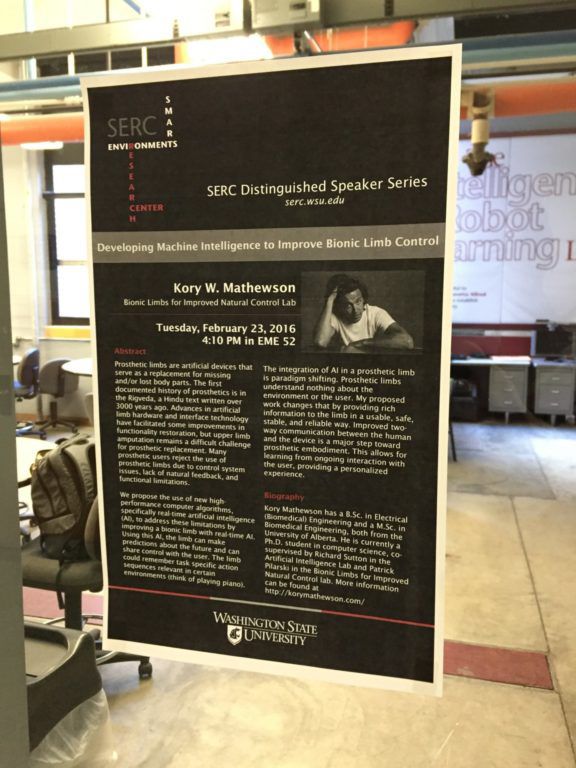Visiting Washington State University
Recently, I was invited to perform TEDxRFT at the Seattle Festival of Improvised Theatre. It was a delightful opportunity to do our show for a new audience in a new city, to travel to Washington State and to visit some old friends from Portland and abroad!
It was also an opportunity for me to take a shot in the dark and send an email to a professor at Washington State University whose work I admire very much. Dr. Matt Taylor works in the domain of reinforcement learning in the Intelligent Robot Learning Laboratory, or IRL at WSU. I am familiar with his work through my research on current topics in the field of teaching robots (see a recent paper of our thought framework).
The IRL is an amazing place with research in the areas of Reinforcement Learning, Transfer Learning in heterogenous domains, Multi-agent Exploration and Optimization, Autonomous robots, and Deep Knowledge Transfer… read more about their current projects.
Matt enthusiastically invited me to come visit the lab at WSU, to give a talk as part of the Smart Environments Research Center Distinguished Speaker Series and to guest lecture in his Introduction to Robotics class (I gave a lecture titled Don’t Shoot the Robot, inspired in large part by the dog training work of Karen Pryor).
There are many things happening in and around the lab that I very much enjoy:
- Interest in project teams (3D printed prosthetic hands controlled by EEG and RoboSub);
- Hardware Hackathon to bring together small, diverse teams for a short hack on a new project;
- Great science and engineering on remote biophysical monitoring, and assisted catheter insertions;
- Lots of access to robotic development hardware (UAVs, drones, Turtlebots); and
- Great science on interactive reinforcement learning (like this amazing work).
Lots of this work happens in the Frank Innovation Zone, or Fiz, which is an amazing Community Studio with Wood, Desktop and Metal Fabrication, Electrical Testing and Fabrication and lab space to experiment with the new robots and algorithms. Students are trained on the tools and machines and they are further supported by staff who can purchase raw materials and advise on projects.
It is fun to connect with amazing scientists and engineers who are physically far away, but, when it comes to the research we are doing, it feels like they are right next door.
I can’t stress enough how important it is to get out of the place you are working in, and to travel to gain exposure to the work happening elsewhere in parallel. It also helps give you perspective on the work you are doing and how it fits into the global knowledge landscape.
Special thanks to the amazing students of Matt’s who made my stay so easy and enjoyable: Gabe, Bei, James, Chris and everyone else who shared with me their research ideas, goals and progress.



